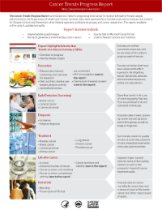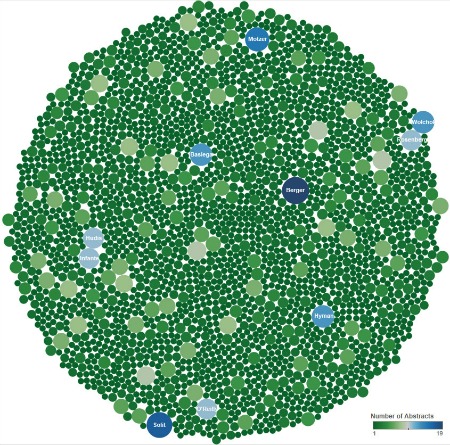Another ASCO meeting has come and gone and MSK continues to make its mark at the conference. Contributing a total of 304 abstracts this year, MSK stands at a 3% increase over the number of abstracts that were presented at the 2015 Annual Meeting (296 abstracts).
Musical Healing, ICU Communication Win, The Lounge, and more!
Holly Mentzer, a music therapist from MSK’s Integrative Medicine Department raises the spirits and brings peace to patients across the hospital. The music therapists at MSK offer both individual and group sessions as well as art and movement therapy to ease pain, build social connections, and provide comfort to patients. Holly brings her harp to Garrett Lambert’s isolation room and they “make the enclosed room feel like a serene, welcoming space as she and Lambert harmonize.”
A study jointly led by Shannon Carson, MD (UNC Chapel Hill), Judith Nelson, MD, JD, and Christopher Cox, MD (Duke) published on July 5 in JAMA showed that ICU clinicians were as effective at communication and family support as specialized palliative care teams for families of chronically ill patients in the ICU.
Citation: Carson SS, Cox CE, Wallenstein S, et al. Effect of Palliative Care–Led Meetings for Families of Patients With Chronic Critical Illness: A Randomized Clinical Trial. JAMA. 2016;316(1):51-62. doi:10.1001/jama.2016.8474. Continue reading
New Informatics Tools and Methods to Enhance U.S. Cancer Surveillance Research
 The NIH/NCI recently announced a new funding opportunity for projects that will develop, adapt, apply, scale up, and validate tools and methods to improve the collection and integration of cancer registry data and to expand the data items collected.
The NIH/NCI recently announced a new funding opportunity for projects that will develop, adapt, apply, scale up, and validate tools and methods to improve the collection and integration of cancer registry data and to expand the data items collected.
The NCI’s Surveillance, Epidemiology, and End Results Program and the CDC’s National Program of Cancer Registries collect data for the US population in order to report on cancer trends and identify needs for more cancer prevention and control efforts (see fact sheet at left for an example). However, in recent years, there have been challenges due to the increasing complexity of health care information. For example, with more care being delivered at outpatient facilities, it’s increasingly difficult to collect relevant information on all cancer cases diagnosed in their catchment areas.
The new funding opportunity will help advance surveillance science by improving data collection methods, expanding on data elements being captured, and creating tools and methods to be incorporated in the routine process that can be scaled up to multiple registries. For more information, see FOA: PAR-16-349. Applications will be accepted starting September 14, 2016.
